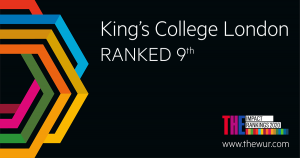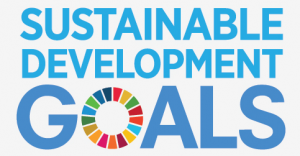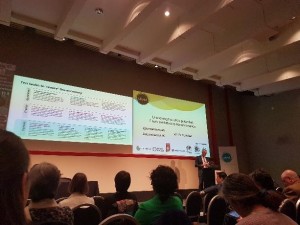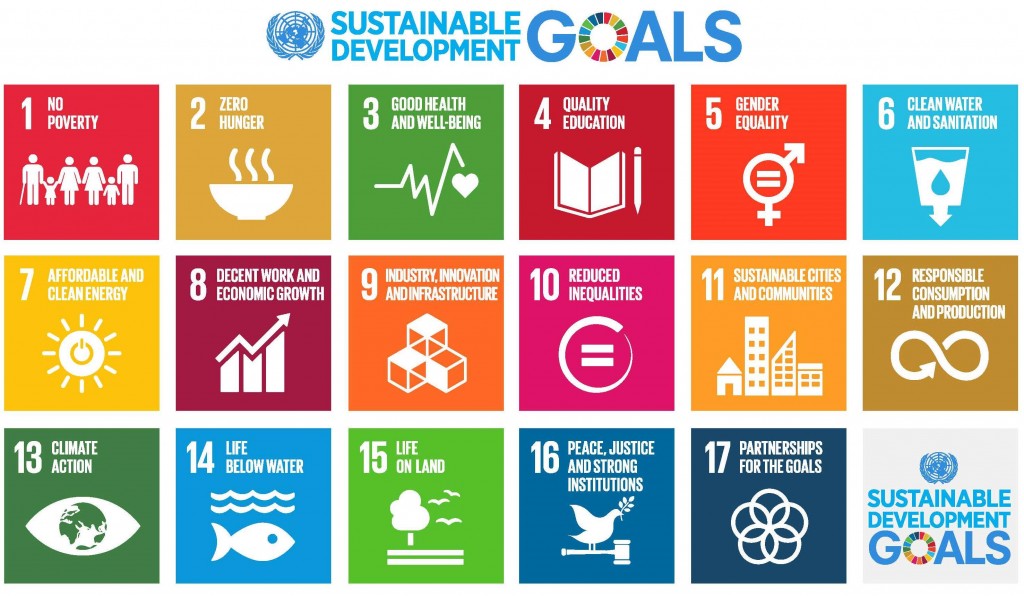King’s was ranked 9th in the world in the 2020 Times Higher Education Impact Ranking. The ranking, which was first released in 2019, measures universities’ societal impact and work towards achieving the 17 United Nations Sustainable Development Goals (SDGs).
At King’s, we use the SDGs to illustrate the wide range of topics covered by the term ‘sustainability’, looking beyond only environmental sustainability and including social and economic sustainability. We are a signatory of the SDG Accord, and both the Environmental Sustainability Report and Service Report use the SDGs as a framework to show how our initiatives are making an impact.
The THE Impact Ranking looks at various measures of how universities contribute towards all 17 SDGs. This includes research, education, as well as policies and initiatives run by the university. For each university, the three SDGs it scored highest in are counted towards the ranking, as well as Goal 17, Partnerships for the Goals. For King’s, the SDGs we contributed most towards are:
- Goal 17, Partnerships for the Goals
- Goal 11, Sustainable Cities and Communities
- Goal 3, Good Health and Wellbeing
- Goal 16, Peace, Justice and Strong Institutions
For Goal 17, King’s was ranked 4th in the world, highlighting the impact of our partnerships across the world, as well as our reporting against the SDGs. We have also maintained a high rating for our contribution to Goal 3, ranking 11th in the world. This is a testimony to our medical research, education, as well as initiatives that support the health and wellbeing of our students and staff. Our biggest increase in score this year was for Goal 11, Sustainable Cities and Communities. As well as research and education, sustainable practices and our contribution to arts and heritage have significant impact on our score in this category. This includes encouraging sustainable campus to travel, as well as following sustainability standards for new buildings. Free-to-visit exhibition spaces like the Science Gallery, the Arcade at Bush House or the Exchange at Bush House North East Wing are also highlighted in this part of the ranking.
We are proud to have maintained our top ten position in the ranking this year, particularly as the number of universities taking part increased from 462 to 766. You can find the full THE Impact Rankings 2020 here.


 The conference started with a keynote speech by Amanda MacKenzie OBE, who highlighted the importance of getting everyone involved. When the SDGs were unveiled, she ran a campaign to get word about them out there. One of the key messages of this was the importance of using simple language everyone understands. This is why she refers to the goals as Global Goals rather than SDGs, claiming the term SDGs “sounds like something you would see your doctor about”. By calling them the Global Goals and making them accessible, we should be able to take millions of small, simple actions, together adding up to significant change.
The conference started with a keynote speech by Amanda MacKenzie OBE, who highlighted the importance of getting everyone involved. When the SDGs were unveiled, she ran a campaign to get word about them out there. One of the key messages of this was the importance of using simple language everyone understands. This is why she refers to the goals as Global Goals rather than SDGs, claiming the term SDGs “sounds like something you would see your doctor about”. By calling them the Global Goals and making them accessible, we should be able to take millions of small, simple actions, together adding up to significant change.

